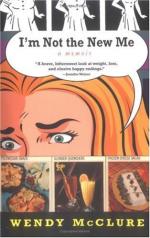Mr. Belden smothered a groan, or perhaps something worse. The butter question was a sore one, Mrs. Belden taking only a stated quantity of that article a week, and always unexpectedly coming short of it before the day of replenishment, although no argument ever served to induce her to increase the original amount for consumption.
“Cannot Bridget go?” he asked weakly, gazing at the small, plump figure of his wife, as she stood with meek yet inexorable eyes looking down at him.
“Bridget is washing the dishes, and the stores will be closed before she can get out.”
“Can’t one of the boys—” He stopped. There was in this household a god who ruled everything in it, to whom all pleasures were offered up, all individual desires sacrificed, and whose Best Good was the greedy and unappreciative Juggernaut before whom Mr. Belden and his wife prostrated themselves daily. This idol was called The Children. Mr. Belden felt that he had gone too far.
“William!” said his wife severely, “I am surprised at you. John and Henry have their lessons to get, and Willy has a cold; I could not think of exposing him to the night air; and it is so damp, too!”
Mr. Belden slowly and stiffly rose from his reclining position on the sofa. There was a finality in his wife’s tone before which he succumbed.
The night air was damp. As he walked along the street the water slopped around his feet, and ran in rills down his rubber coat. He did not feel as contented as usual. When he was a youngster, he reflected with exaggerated bitterness, boys were boys, and not treated like precious pieces of porcelain. He did not remember, as a boy, ever having any special consideration shown him; yet he had been both happy and healthy, healthier perhaps than his over-tended brood at home. In his day it had been popularly supposed that nothing could hurt a boy. He heaved a sigh over the altered times, and then coughed a little, for he had a cold as well as Willy.
The streets were favorable to silent meditation, for there was no one out in them. The boughs of the trees swished backward and forward in the storm, and the puddles at the crossings reflected the dismal yellow glare of the street lamps. Every one was housed to-night in the pretty detached cottages he passed, and he thought with growing wrath of the trivial errand on which he had been sent. “In happy homes he saw the light,” but none of the high purpose of the youth of “Excelsior” fame stirred his heart—rather a dull sense of failure from all high things. What did his life amount to anyway, that he should count one thing more trivial than another? He loved his wife and children dearly, but he remembered a time when his ambition had not thought of being satisfied with the daily grind for a living and a dreamless sleep at night.




